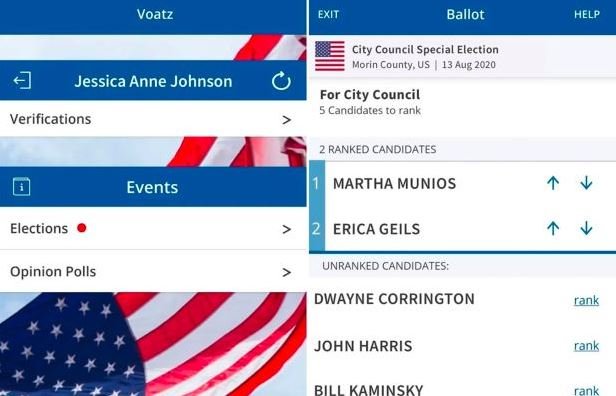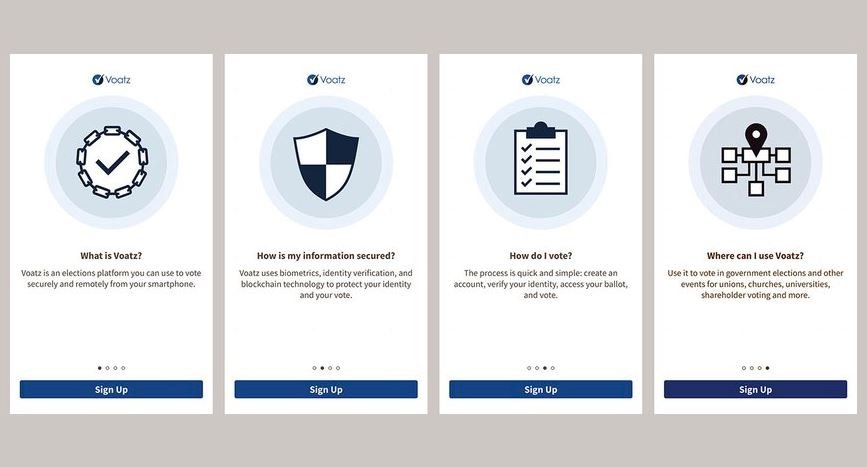The global state of health and technological advances has made many activities go in a different way. Reflecting this are the elections in the U.S., for which for the first time in history an electronic blockchain-based voting system will be implemented; even a Utah man has already made history by becoming the first user to exercise his vote by this means: “This is a memorable day for our nation,” said Josh Daniels, registered voter.
Daniels cast his e-vote in Utah County with the Voatz app, which had already been tested in other territories including West Virginia, Colorado and Oregon. However, Utah was the first state to conduct a live demonstration of how ballots issued with this system can be audited.

Utah County Auditor Amelia Powers Gardner mentions that Voatz has been one of the most cost-effective initiatives she has implemented with her team: “We are proud to lead our state and nation in this innovative, cutting-edge technology.”

Voatz began to be used in Utah nearly two years ago, mainly to allow foreign-based troops to vote without using email, considered an insecure means. Although this system has proven effective even in helping disabled voters, potential failures have also been noted, receiving criticism even from some members of the U.S. Congress, including Senator Ron Wyden.

In this regard, cybersecurity specialist Bruce Schneier believes that there is still a long way to go to consolidate the security of these systems: “We would have to live in a world where companies like Microsoft would stop sending constant updates to fully trust these systems; you have to be enthusiastic, but this won’t happen in the near future.”
The system was first tested during the 2018 intermediate elections in West Virginia, recording an attempted hacking against Voatz that proved fruitless for attackers. Still, many believe that the treatment of information as sensitive as people’s votes cannot be left to a system exposed to failure, attempted cyberattack, or even government manipulation, so it is not yet a widespread practice in the U.S.

He is a well-known expert in mobile security and malware analysis. He studied Computer Science at NYU and started working as a cyber security analyst in 2003. He is actively working as an anti-malware expert. He also worked for security companies like Kaspersky Lab. His everyday job includes researching about new malware and cyber security incidents. Also he has deep level of knowledge in mobile security and mobile vulnerabilities.











